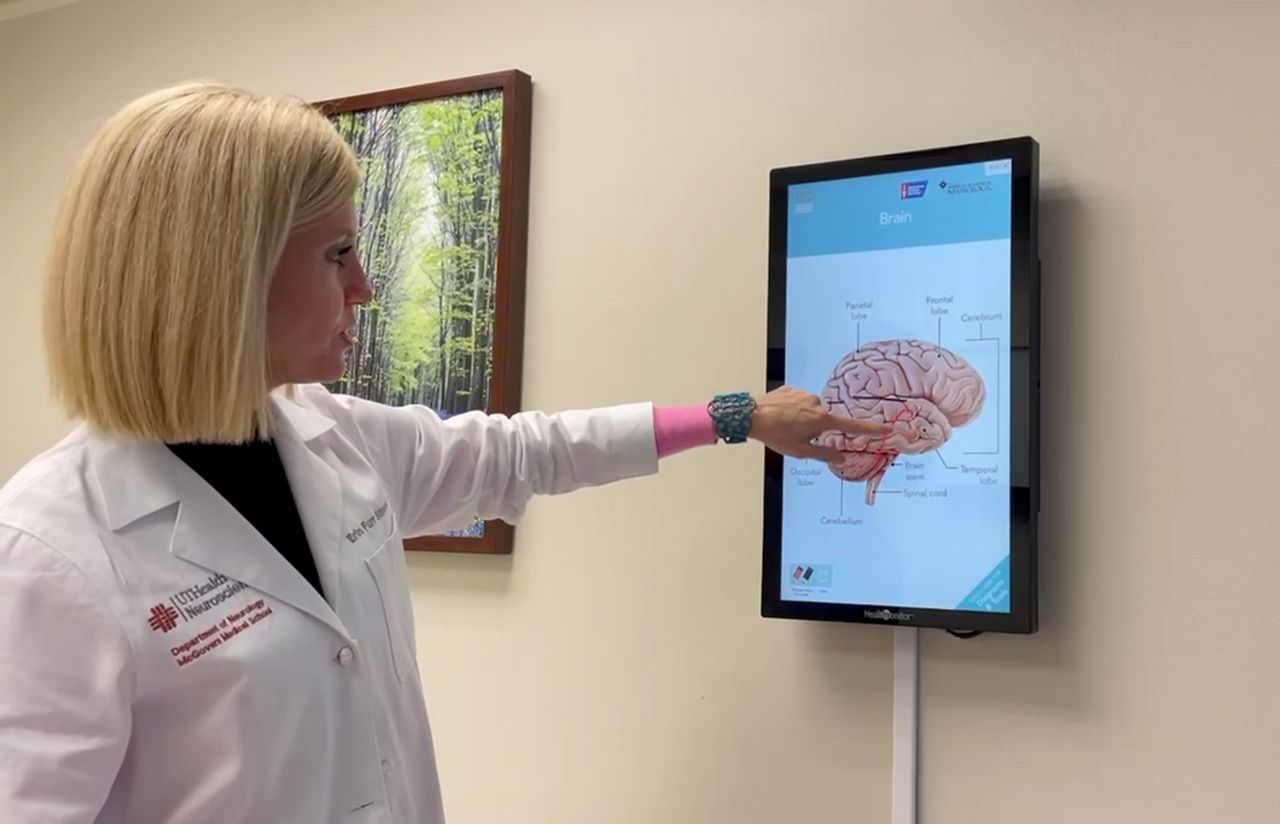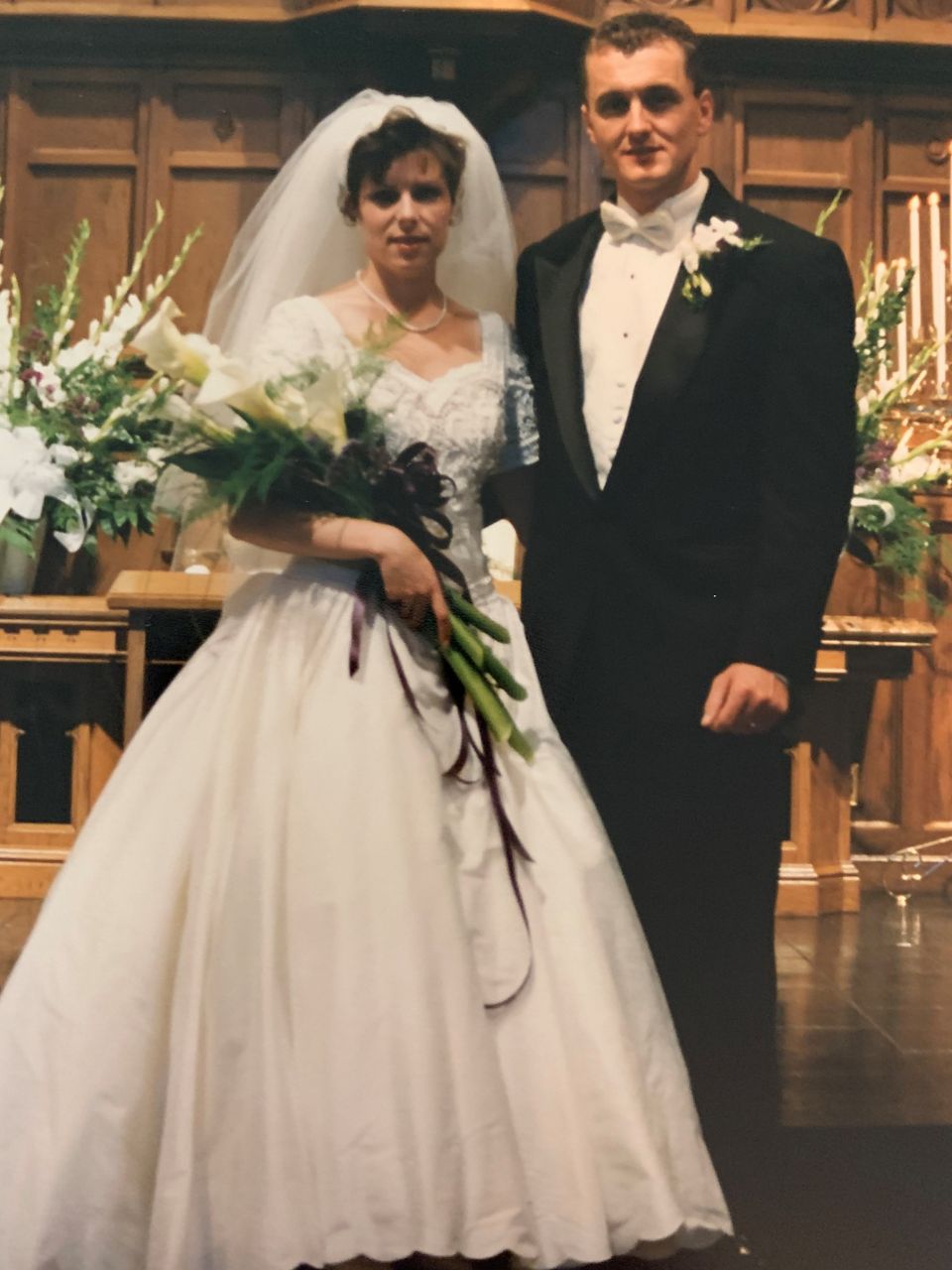TEXAS — Huntington's disease is a devastating fatal neurologic disease that affects roughly 41,000 Americans, and about 200,000 people are living at risk of inheriting it, mainly children with a parent who carries the HD gene. In Texas, there are more than 20,000 individuals with HD or at risk of developing it.
While there is no cure for HD, families with loved ones living with the disease are hopeful that one day a treatment will be discovered that can slow or halt its progression.
Symptoms of HD are described as having ALS, Parkinson's and Alzheimer’s simultaneously. Generally, there are three domains that are affected: cognition, motor and psychiatric. Individuals have motor symptoms like chorea, an involuntary movement disorder. Cognitive symptoms lead to difficulty with attention and focus and leave patients unable to communicate with loved ones.
"The psychiatric symptoms and behavioral symptoms of HD are probably the most bothersome and troublesome for our patients and their families,” said Dr. Erin Furr-Stimming, a neurologist and Huntington’s disease expert with McGovern Medical School at UTHealth in Houston. "The psychiatric symptoms are depression, anxiety, irritability, apathy, impulsivity - and in fact, suicide is the third most common cause of death in individuals living with Huntington's disease.”
The Huntington’s disease community was dealt a huge blow in March when a clinical trial was halted after the study drug didn’t appear to be more effective than the placebo in the interim safety analysis.
"We were all cautiously optimistic about these clinical trials. But we also have to acknowledge that this is part of the process, that these are in fact clinical trials. And these trials, while they are not positive trials and we didn't receive the results that we wanted, are still incredibly important in advancing our understanding and knowledge of Huntington's disease, and helping us to get closer to an effective disease modifying therapy to fight this horrific neurologic disease," Dr. Furr-Stimming said.

Furr-Stimming says the encouraging thing about HD research is that the causative gene is known, and while it’s not possible to eliminate the gene, modifying it or the gene product may be able to effectively slow or halt progression. According to Medline Plus, "HD is caused by a genetic defect on chromosome 4. The defect causes a part of DNA to occur many more times than it is supposed to. This defect is called a CAG repeat. Normally, this section of DNA is repeated 10 to 28 times. But in persons with HD, it is repeated 36 to 120 times."
"We are so grateful for the patients and the families that participate in clinical research, and we hope that, if we continue to use our voices to raise awareness, we can expand care. Not only throughout the state of Texas, but beyond, to really reach those individuals who feel there's nothing that we can do. But there's actually always something, absolutely always something that we can do to help our patients and their families fighting this disease on a daily basis," Dr. Furr-Stimming said.
Additionally, Furr-Stimming, who is also the HDSA's Center of Excellence Director of the University of Texas Health Science Center, highlighted the importance of the Huntington’s Disease Parity Act, which U.S. lawmakers introduced in the hopes of speeding up the process for patients to get Medicare and Social Security Disability Insurance benefits. The act would waive the two-year waiting period for Medicare and the five-month period for SSDI benefits.
A North Texas family has been fighting this disease since 2014. Joe Cunningham, an Air Force veteran, was diagnosed with HD in July 2016. Two years prior to his official diagnosis, his wife Jessica Cunningham started noticing Joe exhibiting irrational behaviors. Joe’s mother died in the '90s from HD, and since the disease is inherited in an autosomal dominant fashion, each child of an infected parent has a 50% chance of inheriting it. Individuals can pursue predictive genetic testing to determine when and if, or whether they’ll be symptomatic.
"Symptoms will show up years beforehand that at the time you don't realize their symptoms, but once he gets diagnosed you kind of think, ‘Oh, I wonder if that was part of it,'” Jessica Cunningham said. “He started acting in ways that he had never acted before. Like he started becoming more angry about things that he didn't used to. He started raging and he's not an angry person. So I was kind of having a suspicion that he might have it.”
Around the time Joe exhibited symptoms, Jessica was diagnosed with breast cancer. After chemotherapy, she had a mastectomy in June 2016, about one month before Joe was diagnosed. She says during her cancer, the family had a lot of support coming in, but that hasn’t been the case with HD.
"When I had my cancer, we were just overwhelmed with support,” Jessica Cunningham said. "There's all these organizations and they came in, they helped clean our house and we got free meals and it was just overwhelming. There's nothing like that for Huntington's, you know, because people don't understand. It can be really hard and very isolating, honestly. Because it's a rare disease, and people just don't understand.”
Jessica says while the behavior that comes from the disease is challenging, finding the right medication to help Joe cope with the symptoms helped tremendously.
“I kept telling myself, and I knew this from all the research, that this behavior was not my husband. That behavior was from the disease,” Jessica Cunningham said. "It's a matter of working with a psychiatrist, and finding the right medication, finding the right type of medication, the dosages, the combination. We finally found the right medication and after that, he became like this calm, sweet, gentle natured, easygoing person.”
Joe does physical therapies and brain exercises daily to help with his motor and cognitive skills. Jessica says she's sharing her family’s story to start a conversation about HD and spread awareness for this rare disease.
"My kids each have a 50% chance and so that's an anxiety that they live with that I can't take that away. It's painful. It's hard for me to lose my husband, but it's hard watching my kids also lose their dad, slowly,” Jessica Cunningham said. "My hope is that, and my belief is that there's going to be treatment, and a cure. But I also want to say that, even though it's really, really hard, we can live with it. And I think the most important thing is to talk about it. Talk about it with your kids, talk about with other family members. It should not be like the elephant in the room and I believe that the more that we talk about it and live with it and deal with it — and seek counseling, I see a counselor — that the easier it is going to be to manage.”

Jessica says despite Joe's diagnosis, she would marry him again in a heartbeat.
"I just believe in true love and we fell in love. I would do it all over again, even knowing that he had Huntington’s,” she said. "Because when you fall in love, you don't know if that person might die from a heart attack, cancer, they might get in a car wreck and die. Like you can't have the risk, because we all die, be a factor in who you fall in love with. And for me, I would do it all over again.”
The Huntington’s Disease Society of America website has plenty of resources available for families needing more information about HD or who are interested in enrolling in a clinical trial. In Texas, HDSA has chapters in the North Texas, San Antonio and Houston areas.



